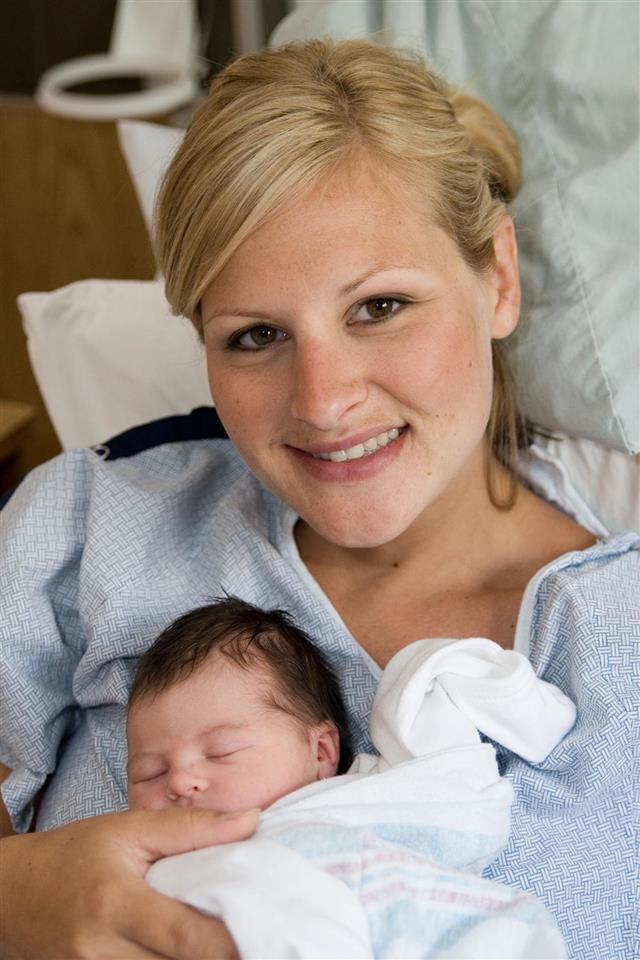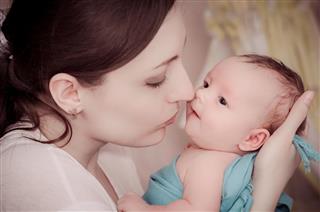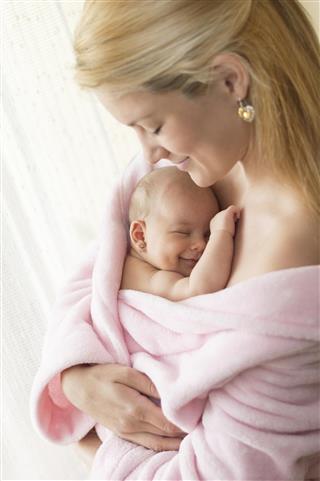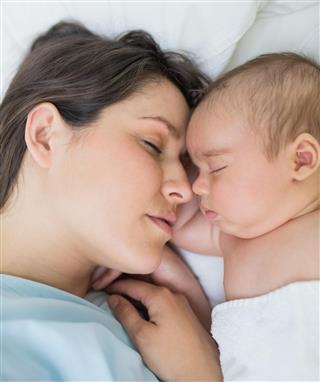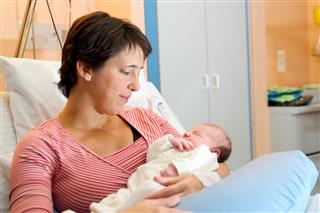
A nursing woman may not have periods; however, she can get pregnant. This article provides information regarding the signs of pregnancy while breastfeeding, and what precautions should be taken by a pregnant nursing woman.
Breastfeeding in a certain manner only can be considered as a safe method of contraception. Intensive breastfeeding (feeding the baby every three hours or so) shows a significant contraceptive effect. It is true that a woman who is feeding the baby with breast milk only, may not have periods; but getting pregnant is quite possible for a lactating woman. It is necessary for the nursing women to know the signs and symptoms of pregnancy while breastfeeding because ‘missed period’ may not be the sign of being pregnant in this case.
Signs of Pregnancy while Nursing
According to the Lactational Amenorrhea Method or LAM, if a nursing woman breastfeeds fully (9 out of 10 feedings are at the breast) and that too for every 3 hours during the day and every 6 hours during the night, then breastfeeding can be considered as an effective contraceptive method. The mother may feed the baby every 2 hours at first. Then she may increase the time gap to 3 hours. Four hours can be the maximum time between feeds during the day.
Recognizing the early signs of being pregnant can be difficult for a lactating woman, especially if she has not started menstruating after the childbirth. As her body slowly returns to fertility after the childbirth, the first ovulation (release of an egg from the ovaries) occurs before the first period. So, it is possible that a nursing woman can become pregnant and may not notice ‘missed period’ as a pregnancy sign. However, she might experience some other symptoms, just like any other normal pregnant woman would.
A pregnant nursing woman may experience implantation spotting as the fertilized egg gets implanted to the wall of the uterus. Statistics show that about 33% pregnant women experience implantation bleeding. Frequent urination, increased fatigue, soreness of nipples, or tender (or swollen) breasts are some other symptoms that may be observed. Some nursing women may experience nausea, vomiting, and food craving as signs of pregnancy after 1 week.
Upset stomach, indigestion, constipation, headache, backache, dizziness, mood swings may also be experienced by pregnant nursing women. A rise in the basal body temperature for more than two weeks (after ovulation) indicates pregnancy. However, if the woman has not kept a record of her basal body temperature before ovulation, then it is not possible for her to detect the rise in temperature. A pregnancy test can be performed to confirm pregnancy.
Reduced milk supply can be one of the important signs of pregnancy after 3 weeks. Morning sickness, strong sense of smell, stomach cramps, etc., can also be noticed. The baby’s response to breastfeeding may change. This is one of the significant signs of pregnancy after 1 month. Some babies may not exhibit any change in their habit; however, some may show dislike. As the consistency and the taste of the breast milk changes (it becomes somewhat salty or sour), some babies may begin to dislike it. The milk may become less white and more watery. However, this cannot be considered as a sure sign of being pregnant. The nutritional qualities of the milk are not affected. So, the woman can continue nursing if the baby is willingly accepting it.
Since breastfeeding can produce uterine contractions, women who are at high risk of miscarriage or preterm labor are not advised to nurse while they are pregnant. A nursing pregnant woman should consult a doctor since she has to breastfeed her baby as well as provide nutrition to the fetus in her womb. The signs of being pregnant during lactation may vary from woman to woman. Some women may not experience breast tenderness, soreness of nipples, or morning sickness. Those women whose bodies exhibit the signs may realize that they are pregnant. However, it is always better to perform the pregnancy test when in doubt.
Disclaimer: This HerHaleness article is for informative purposes only, and should not be used as a replacement for expert medical advice.

